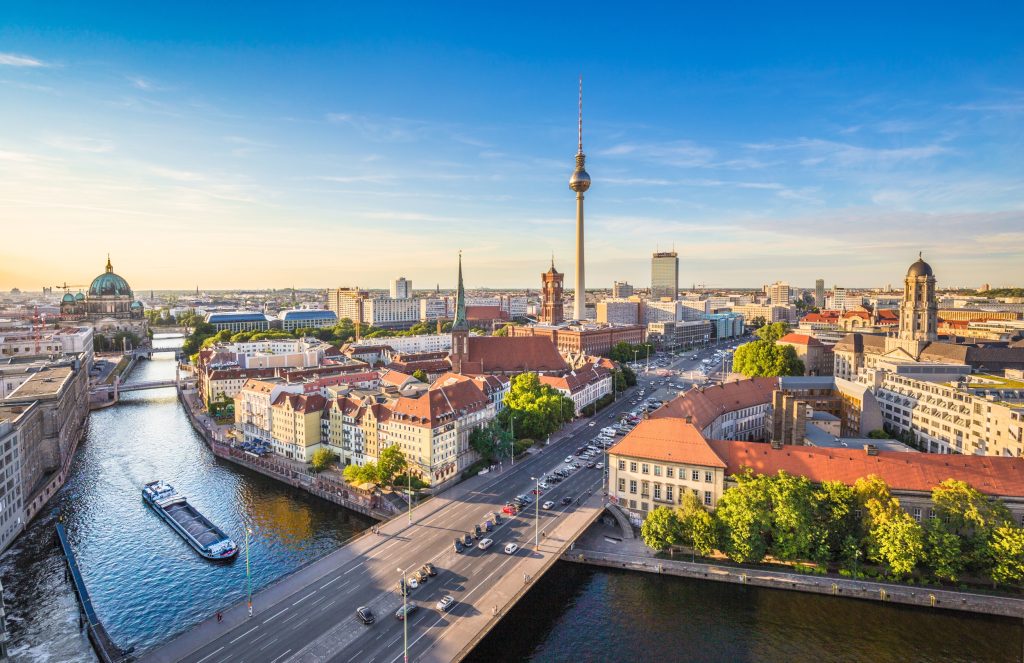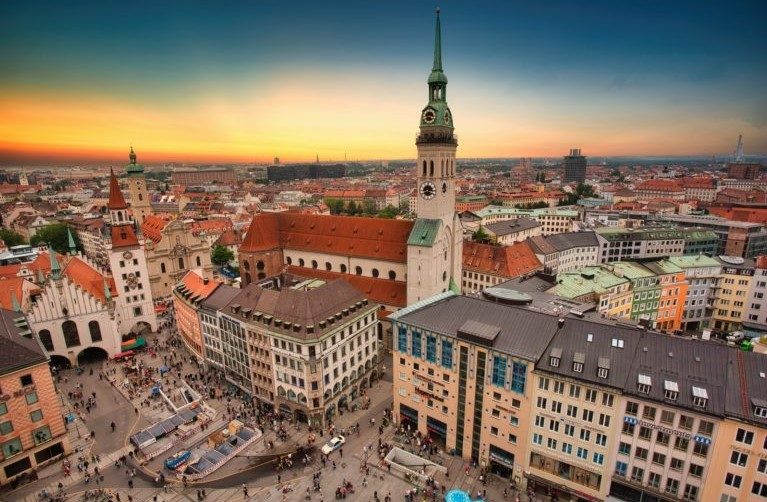Germany, known for its robust economy, high quality of life, and countless opportunities, has long been a desirable destination for people around the world. Whether it’s for work, education, or starting a new life, Germany attracts individuals looking to benefit from its vibrant culture, excellent infrastructure, and social security. If you plan to stay in Germany for more than 90 days, obtaining a residence permit (“Aufenthaltstitel”) is mandatory. This document allows non-EU citizens to live, work, or study in Germany legally.

In this comprehensive guide, we will explore the types of residence permits available, the application process, required documents, and key details to help you navigate living in Germany. We’ll also delve into important aspects of life in Germany, such as the cost of living, healthcare, and other practical tips to help you integrate into German society smoothly.
What is a German Residence Permit?
A German residence permit is an official document that allows you to reside in Germany for a specific purpose, such as working, studying, or reuniting with family members. Individuals intending to settle in Germany must apply for one of the available types of residence permits based on their intended activity. These permits come in several categories, each with different conditions and requirements.
Residence permits in Germany are categorized based on your purpose for being in the country, such as employment, education, or family reunification. It’s essential to understand the differences between these permits to determine which one is best for you and to fulfill all application requirements.
Types of German Residence Permits
Germany offers different types of residence permits depending on your circumstances and reasons for living in the country. Below are the primary types of permits available:
Work Visa
Germany provides a variety of work visas, depending on your qualifications and the type of job offer you receive. Key work visa categories include:
- Specialist Visa (e.g., IT Specialist Visa): Designed for professionals with significant work experience in information technology or other in-demand fields. Candidates must have a concrete job offer in Germany.
- Academic Professional Visa: Tailored for academics or researchers seeking employment in Germany. This visa requires proof of a suitable job offer, along with recognition of the applicant’s academic qualifications.
- Freelance Visa: Suitable for professionals who wish to work independently in Germany. This visa requires applicants to demonstrate sufficient financial means and a business plan.
Student Visa
Germany is a popular destination for international students, offering affordable, high-quality education. The Student Visa is the standard option for those pursuing a university degree (bachelor’s, master’s, or doctorate) in Germany. If you need time to apply to a university, you can apply for a Prospective Student Visa. The student visa allows students to reside in Germany for the duration of their studies, with part-time work options available.
Residence Permit for Investment
Germany also offers a route for individuals who want to invest in the country. Entrepreneurial Residency is an option for individuals establishing a business or investing in an existing business in Germany. Applicants must demonstrate financial stability and present a comprehensive business plan that contributes to the German economy.
Family Reunification Visa
For those wishing to join a family member residing in Germany, the Family Reunification Visa is available. Eligible applicants include spouses, registered partners, and dependent children. The family member living in Germany must demonstrate sufficient financial resources and accommodation to support their relatives.
How to Apply for a German Residence Permit
To apply for a residence permit in Germany, you need to follow several key steps:
Step 1: Determine Your Visa Type
The first step in applying for a residence permit is determining which type is appropriate for your situation—whether for work, study, family reunification, or investment. Each visa category has specific eligibility criteria and required documents that must be prepared before beginning your application.
Step 2: Schedule an Appointment at the German Consulate or Embassy
Once you’ve gathered the necessary documents for your visa type, the next step is scheduling an appointment at your local German consulate or embassy. These offices handle visa applications, and you must schedule a date and time to submit your paperwork.
Step 3: Submit Your Visa Application
During your appointment, you will need to submit your completed application form, along with all required documents. Common requirements include a valid passport, proof of financial means, proof of health insurance, and biometrics (such as passport-sized photos). There is also a visa application fee, which is non-refundable even if your application is denied.
Step 4: Prepare for Travel
After your visa is approved, you can prepare for your move to Germany. Be sure to carry all required documents when traveling, including health insurance. As you will be living in Germany for an extended period, make sure you have your finances, accommodation, and any other important arrangements in place.
Step 5: Apply for the Residence Permit in Germany
Once you arrive in Germany, you must visit the local Foreigners’ Registration Office (Ausländerbehörde) to apply for a residence permit. This must be done within the first 90 days of your arrival. The registration office will require you to provide proof of residence, passport, and other relevant documents.
Documents Required for a German Residence Permit
The documents required for a German residence permit vary depending on the type of visa. Below is a list of some of the documents needed for common residence permits:
- Work Visa:
- Completed visa application form
- Valid passport
- Passport-size biometric photos
- Employment contract from a German company
- Proof that your qualifications are recognized in Germany
- Student Visa:
- Valid passport
- Passport-size biometric photos
- Proof of admission from a German university
- Proof of financial means (e.g., blocked account)
- Entrepreneurial Residency Permit:
- Valid passport
- Passport-size biometric photos
- Business plan
- Proof of sufficient investment capital
Travel Freedom with a German Residence Permit
Holding a German residence permit grants you freedom of movement within the Schengen Area. This means you can travel to other countries in the Schengen Zone for up to 90 days without additional visas. It’s a fantastic benefit for those looking to explore Europe during their time in Germany.
Other Important Considerations for Living in Germany
Acquiring a residence permit is only the first step in settling in Germany. Below are some additional points to consider:
Cost of Living in Germany
The cost of living in Germany can vary widely based on the city you choose to reside in. Major cities like Munich, Frankfurt, and Hamburg tend to be more expensive, particularly in terms of rent. Smaller cities and rural areas offer a more affordable cost of living. On average, monthly rent for a one-bedroom apartment ranges between €800 – €1,500 in larger cities.
Healthcare System
Germany has a world-renowned healthcare system that offers both public and private health insurance. All residents, including expatriates, must have health insurance. Expats working in Germany are usually required to enroll in statutory health insurance (Gesetzliche Krankenversicherung). Private insurance is also available for those who meet specific conditions.
Integration into German Society
Learning German can significantly enhance your experience living in Germany. Many courses are available to help expats learn the language, which can be crucial for navigating daily life, making friends, and succeeding in your career. The Federal Office for Migration and Refugees (BAMF) offers subsidized integration courses to help foreigners learn German and understand German culture.
Finding Accommodation
The German housing market can be competitive, especially in major cities. It’s advisable to start looking for accommodation before arriving in Germany, using platforms like ImmobilienScout24 or WG-Gesucht. It is also crucial to register your address with the local authorities once you secure a place.
Summary and Recommendations
Obtaining a residence permit in Germany is a straightforward but detail-oriented process that involves careful preparation of documents and adherence to regulations. Knowing your visa options, gathering the necessary paperwork, and following the correct steps can make the entire process significantly smoother. Whether you’re coming to Germany for work, education, or to start a new business, there are abundant opportunities to benefit from Germany’s robust infrastructure and quality of life.
If you need more information or professional assistance with your German residence permit application, feel free to contact immigration consultants or visit the official websites for more details. With proper guidance and preparation, you can look forward to a successful application and an enriching experience living in Germany.

